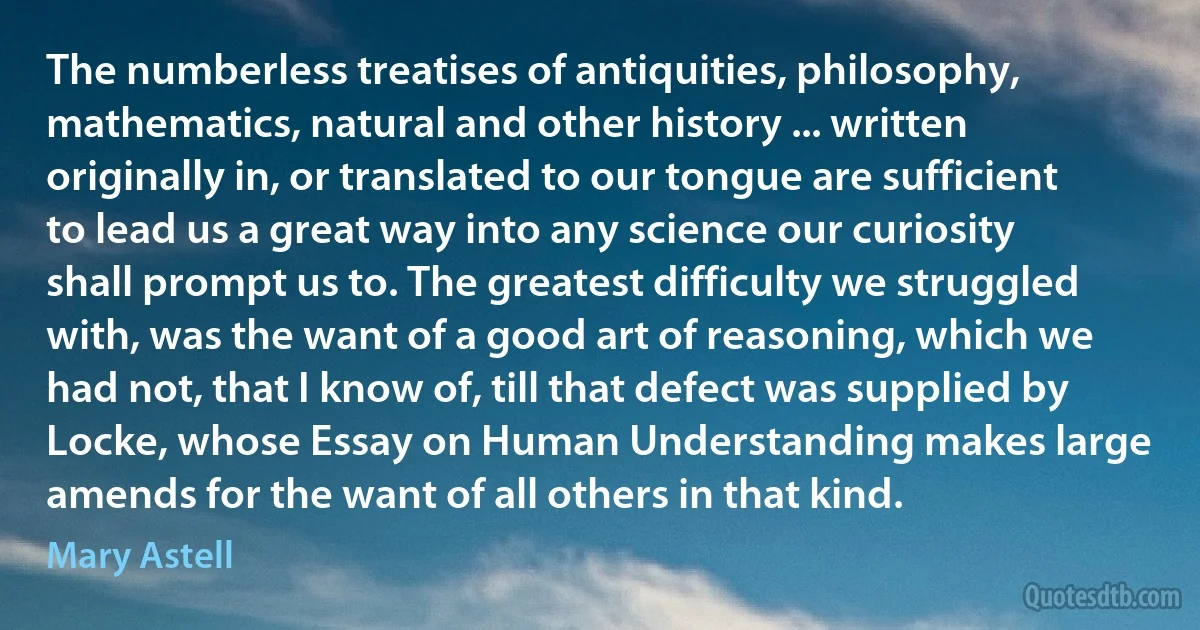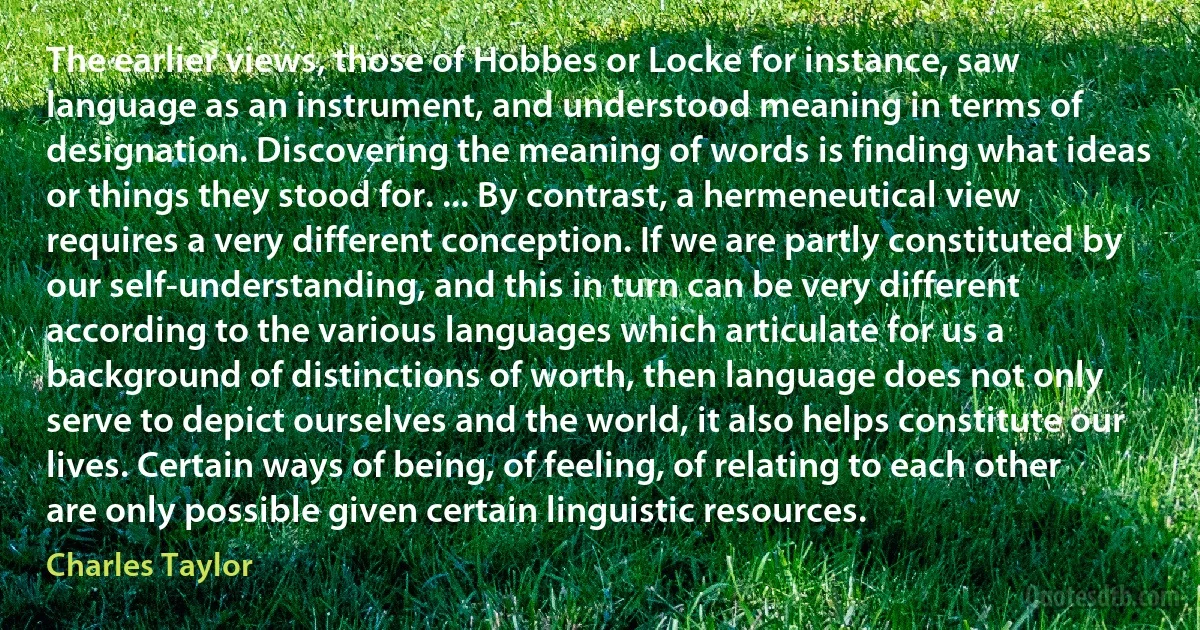Locke Quotes - page 2
As Locke sees, equality in authority entails denying to the legal system's administrators-and thus to the legal system itself-any powers beyond those possessed by private citizens:The law of nature is in that state put into every man's hands, whereby every one has a right to punish the transgressors of that law to such a degree as may hinder its violation.... For in that state of perfect equality, where naturally there is no superiority or jurisdiction of one over another, what any may do in prosecution of that law, every one must needs have a right to do.Lockean equality involves not merely equality before legislators, judges, and police, but, far more crucially, equality with legislators, judges, and police.

Roderick Long
Well aware of both the continuity and contingency of human affairs, Adams and Madison searched the works of Tacitus and Voltaire and Locke like carpenters rummaging through their assortment of tools, knowing that all the pediments were jury-rigged, all the provisional, all the alliances temporary.

Lewis H. Lapham
Coleridge observes that all men are born Aristotelians or Platonists. The latter feel that classes, orders, and genres are realities; the former, that they are generalizations. For the latter, language is nothing but an approximative set of symbols; for the former, it is the map of the universe. The Platonist knows that the universe is somehow a cosmos, an order; that order, for the Aristotelian, can be an error or a fiction of our partial knowledge. Across the latitudes and the epochs, the two immortal antagonists change their name and language: one is Parmenides, Plato, Spinoza, Kant, Francis Bradley; the other, Heraclitus, Aristotle, Locke, Hume, William James.

Jorge Luis Borges
In the new order a Locke was free-with almost no danger of being interfered with-to think his sublime thoughts, to seek the first causes of all things, to understand the nature of things. He could talk with his friends and teach the young. And there was money enough. The academies and universities satisfied Socrates' demand to be fed in the prytaneum.

Allan Bloom
Isaac Newton deserves to be included in a series of companions to major philosophers even though he was not a philosopher in the sense in which Descartes, Locke, and Kant were philosophers. That is, Newton made no direct contributions to epistemology or metaphysics that would warrant his inclusion in the standard list of major philosophers of the seventeenth and eighteenth centuries – Descartes, Spinoza, Locke, Leibniz, Berkeley, Hume, and Kant – or even in a list of other significant philosophers of the era – Bacon, Hobbes, Arnauld, Malebranche, Wolff, and Reid. The contributions to knowledge that made Newton a dominant figure of the last millennium were to science, not to philosophy.

I. Bernard Cohen
But to return to the Newtonian Philosophy: Tho' its Truth is supported by Mathematicks, yet its Physical Discoveries may be communicated without. The great Mr. Locke was the first who became a Newtonian Philosopher without the help of Geometry; for having asked Mr. Huygens, whether all the mathematical Propositions in Sir Isaac's Principia were true, and being told he might depend upon their Certainty; he took them for granted, and carefully examined the Reasonings and Corollaries drawn from them, became Master of all the Physics, and was fully convinc'd of the great Discoveries contained in that Book.

John Theophilus Desaguliers
Privilege is basically a form of property, and as John Locke pointed out, property is what makes a civilization rather than a Libyan war zone of Hobbesian anarchy. The world is a better place when people can work constructively to earn privileges, individual and collective, and pass some of them on to their heirs.

Steve Sailer
Hegel's lack of charity toward the instrument metaphor is not arbitrary. It represents his disenchantment with the assumption that knowledge is power and that method is the means to this end. ... Descartes' conception of method, like Bacon's, is linked to this idea of knowledge as an instrument of power. ... The same could be said of Locke. Hegel can rightly claim that the instrument metaphor pervades the epistemological tradition he is seeking to transcend.

Merold Westphal
Both Hayek and Locke thought that this is best achieved by limiting government's potential actions and restricting these potential actions to known general rules applicable to all. Both sought a government of rules rather than commands, the latter of which, by their nature, are not known in advance and may be arbitrary-not applicable to all. Hayek's goal was the society of law.

Alan O. Ebenstein



